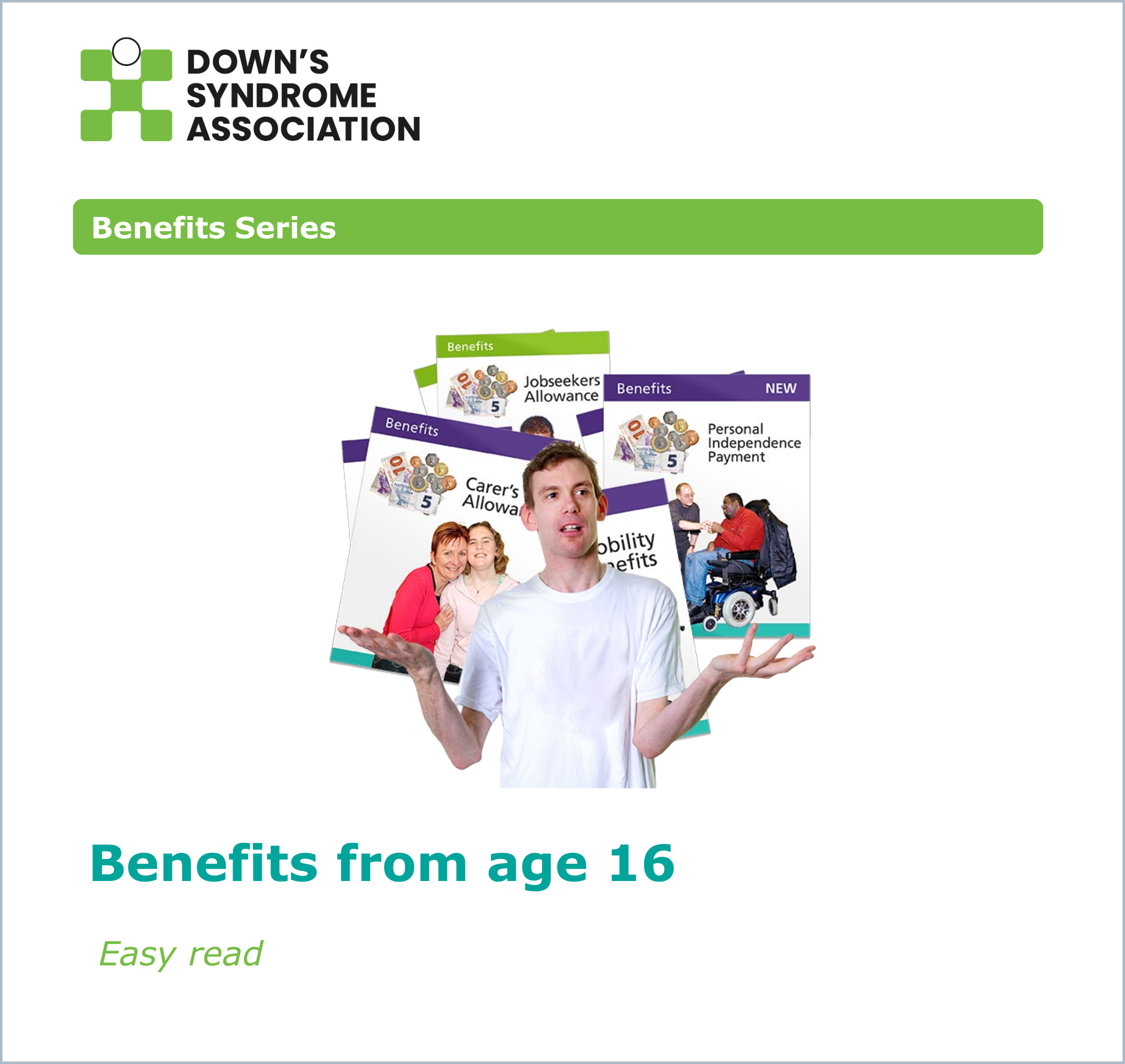Benefits & Finance
We provide benefit advice from birth to old age, and help with new claims, reconsiderations and appeals, so please call if you need help and talk to Helen, the DSA benefits adviser.
Ring 0333 1212300 or email helen.wild@downs-syndrome.org.uk.
Helen is available on Monday and Thursday from 10am-4pm and on Tuesday and Wednesday from 10am-12.30pm.
Some benefits like Universal Credit are means tested which means that DWP will take savings and income into account. Other benefits such as Personal Independence Payment (PIP) or Disability Living Allowance (DLA) are not means tested which means any savings you have are not taken into account in the calculation.
If you, or members of your family, are subject to immigration control, please get advice before claiming any benefit. If you claim wrongly, you may put your stay in the UK at risk.

Commonly Claimed Benefits
For babies and children under 16
- Child Benefit – can be claimed by all families, reduced for families on higher incomes
- Universal Credit – claimed by families on lower incomes. Universal Credit has replaced Working Tax Credits for families although some may still be receiving it.
- Disability Living Allowance (DLA) – a non means-tested benefit for children with a disability or illness. It is intended to help with extra disability related costs. This is the main ‘extra’ benefit for children who have Down’s syndrome. You can spend DLA in any way that benefits your child.
- Carer’s Allowance – paid to people who are not working because they care for someone who gets DLA. People who work part time may qualify if they are within earnings limits.
For people at 16 and over living with their family
- Child Benefit, and Child Tax Credit or Universal Credit you receive for your child may remain in payment until they reach 20, if they are still in education.
- Personal Independence Payment (PIP). At 16, your child will claim PIP instead of DLA. Like DLA, it is to help with extra disability related costs. It is also not means-tested, but your child’s needs will be assessed under different rules. PIP can be spent in any way that benefits your child.
- Carer’s Allowance – this will continue if you are not working or within the earnings limit, and still caring for your child who gets PIP.
- Universal Credit can be paid to someone aged 16 or over no longer in education. If in full-time education, it can be paid if they are a student without full parental support or they have limited capability for work (after having a work capability assessment). The rules are complicated so please call for help with this as there are ways to have the Work Capability Assessment carried out.
When your child claims benefit in their own right, such as Universal Credit, they will no longer be part of any claim that you may have, such as Child Benefit, Child Tax Credit or any child amount of Universal Credit. Some families will be better off staying with existing benefits until they come to a natural end (usually before age 20). When your child turns 16, check whether it’s better for you to claim benefit for them in their own right, or not.
For People Living Independently
People who have Down’s syndrome in a supported living setting should receive Universal Credit for living cost and their housing cost met by Housing Benefit (as their accommodation is classed as specified accommodation). Some may still receive Employment and Support Allowance (ESA) and Housing Benefit if they were on these benefits before the introduction of Universal Credit.
They will receive Personal Independent Payment (PIP). They may also be entitled to Council Tax Support, if they are liable to pay any Council Tax. Higher levels of some benefits may also be payable, if they count as ‘living alone’. If they only live with other people with disabilities on benefits, they may count as ‘living alone’.
Resources
Down’s Syndrome Association
We have many resources to help guide you. Benefits information is complex and changes often so please contact us to answer your questions in person.
Benefits from age 16 – easy read
Click on the image or on the button, below, to download the accessible document.

